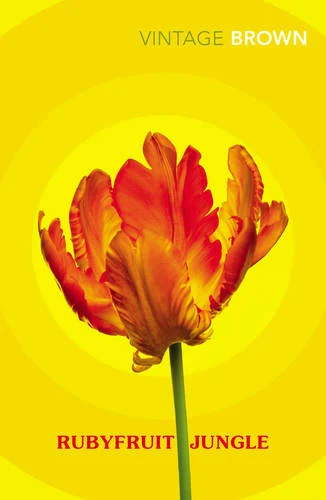If you’ve ever felt unsure about your place in the butch/femme dichotomy as a woman-loving person, then Molly Bolt, this novel’s protagonist, might be up your street. She is tenaciously witty, charming and has a way of making girls (and guys) swoon – what’s not to love? I first read Rubyfruit Jungle by Rita Mae Brown a long time ago, when I was still in the closet. I probably found it on a list of recommended books titled something like, “Read This if You Think You Might Be Gay.” Most likely, I read it secretly in the middle of the night, under a duvet, using the light from my old brick iPhone.
I didn’t remember much about the plot, but during a visit back home to Bristol, I found my old copy tucked away on a shelf and decided it was time for a nostalgic reread. Often regarded as a classic of lesbian literature, although I feel the protagonist and the author lean more towards bisexuality throughout the story, the book’s boldness has secured its place in lesbian literary history. I sped through it in about three sittings.
What’s Rubyfruit Jungle about?
Set in the 1960s in post-war America, stretching from Pennsylvania and Florida to New York City, this semi-autobiographical novel, published in 1973, feels surprisingly contemporary and vivid at times. With its humour and profanity as an explicitly lesbian coming-of-age story, it’s quite iconic that such an unapologetically subversive book was published during that era. The novel freely uses the words “lesbian” and “queer” throughout, which even today some novels seem to shy away from.
The story follows Molly Bolt, a smart and rebellious young woman who dreams of becoming a film director. Throughout her journey, Molly experiences various setbacks, as well as sexual encounters with men and women, some more significant or baffling than others, all while navigating the pressures of heteronormative expectations and others’ conservative shame. As a young queer woman, the odds feel stacked against her.
What stood out?
Brown’s writing feels precise and contemporary, as if it could have been published yesterday. At times, it feels jarring, with cultural references, language and some dialogue containing derogatory slurs that reflect its outdated context. I held my breath at points, unsure of where the sentence would venture next, as the novel highlights themes of homophobia, racism, conflict, bigotry and taboo topics of consent (even incest at one point, which, on top of some of the others, I believe the plot really could have done without).
Article continues below.
That said, through much of the dialogue and characters, Brown reflects the often contradictory and bigoted views of the era in which the novel was conceived and set, making the protagonist’s strength of character all the more impressive. Molly Bolt is resilient, ambitious and adaptable. She navigates various experiences to make ends meet, bringing her closer to her true nature. Her voice oscillates between youthful bravado and powerful clarity, especially when discussing women; at times, it feels juvenile or questionable. At others, it’s empowering and defiant.
But Molly Bolt’s flaws as a character, particularly towards the end, may contribute to any dislike toward the book and its representation. While she displays some strong principles and enviable gusto, she often comes across as morally ambiguous and makes some questionable decisions, which can be both rebellious and disappointing. Perhaps Molly could have been portrayed as more heroic, but that’s quite a burden on one character who reflects some of the struggles for equality in post-war America. Even so, she’s an inspirational character for her time.
A sneak peek into Rubyfruit Jungle
Excerpt from Rubyfruit Jungle by Rita Mae Brown
“I’m queer. But why would people get so upset about something that feels so good? Me being a queer can’t hurt anyone, why should it be such a terrible thing? Makes no sense.”
The verdict?
Despite some shortcomings, the book makes for a fun, swift and dynamic read with some good laughs and shocks along the way. This was an iconic coming-out novel for many in its time, and I don’t doubt that reading it in the ’70s might have felt revolutionary. It’s perfect for long train journeys and swapping with mates to tick off one of the lesbian classics.
Star rating
Grab your copy at Bookshop.org. Need more queer book recs? Don’t worry, we’ve got you covered: Must-Read Lesbian & Sapphic Books.
Nonchalant x







